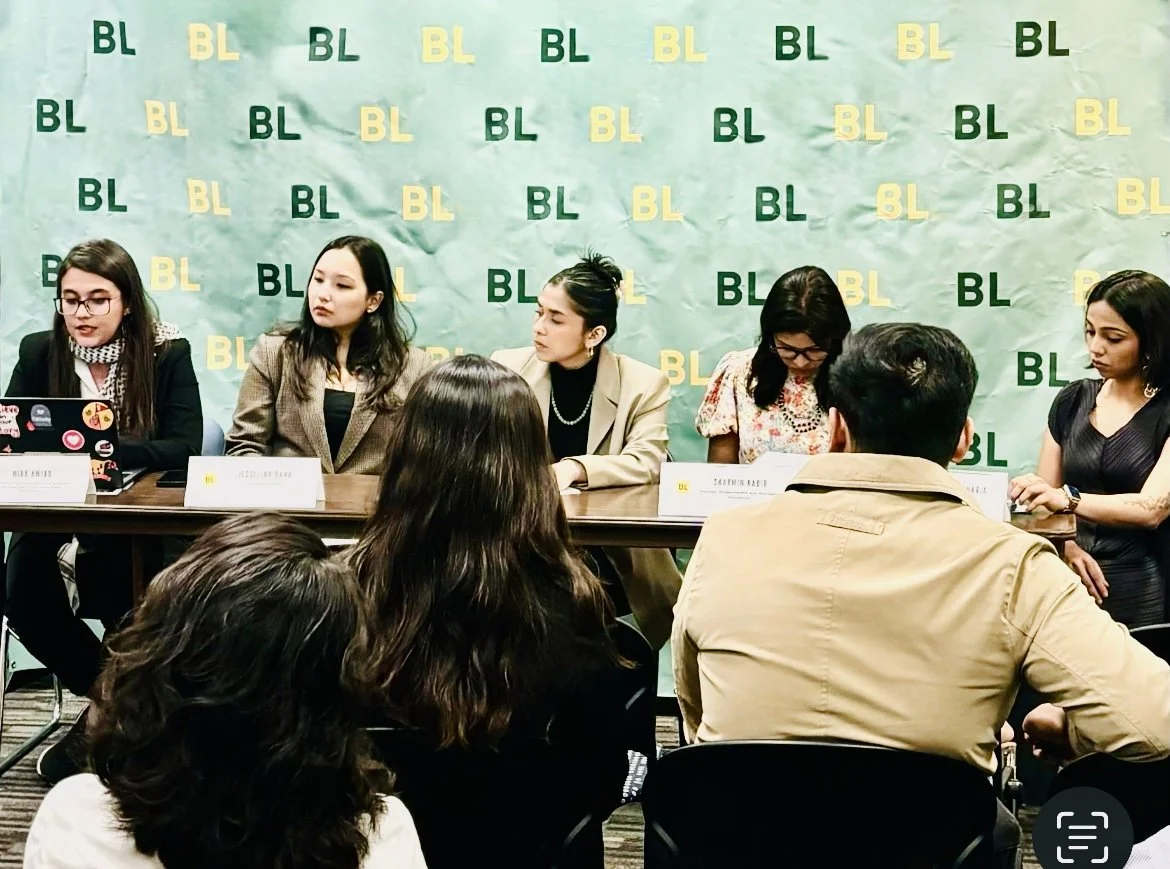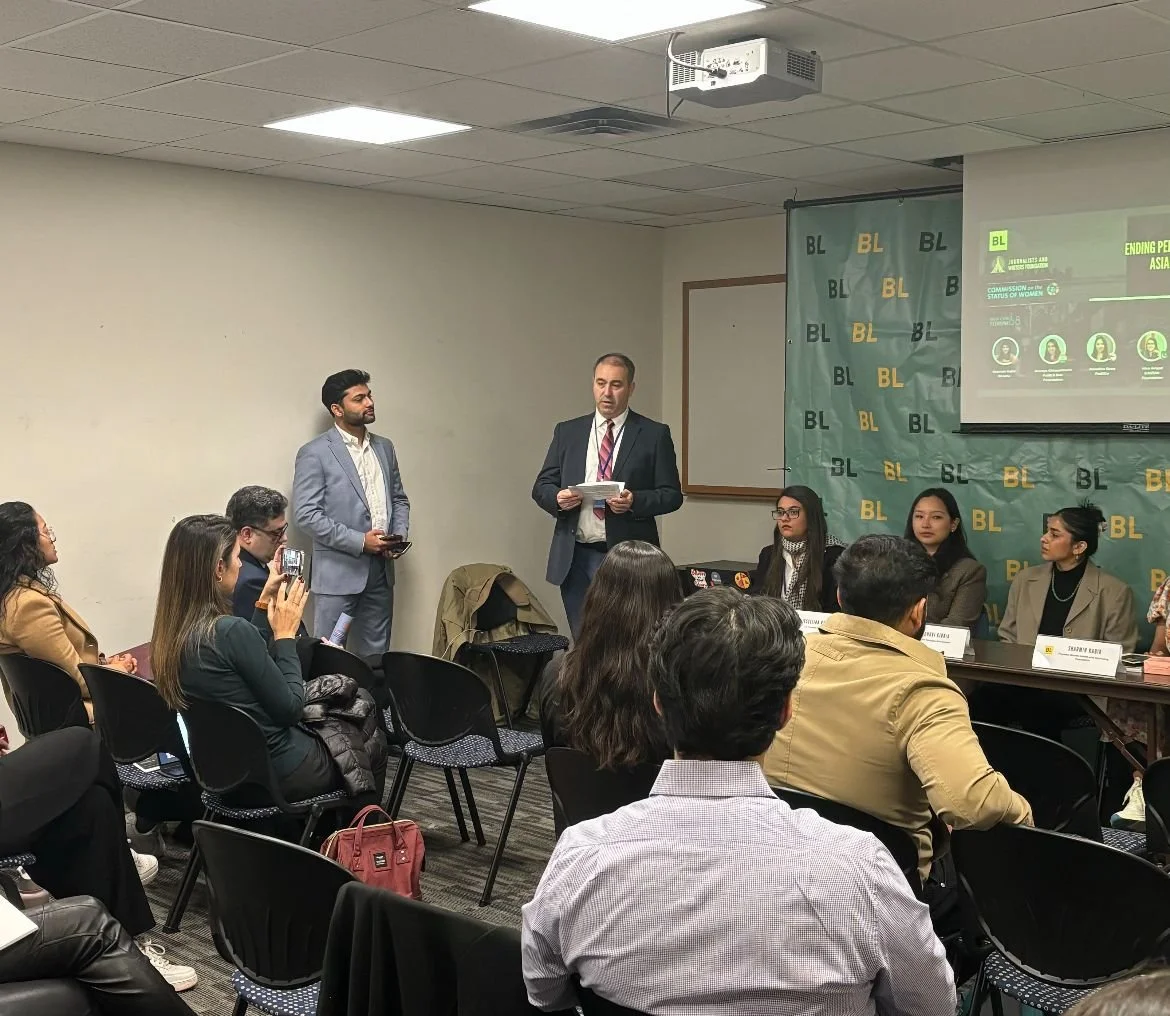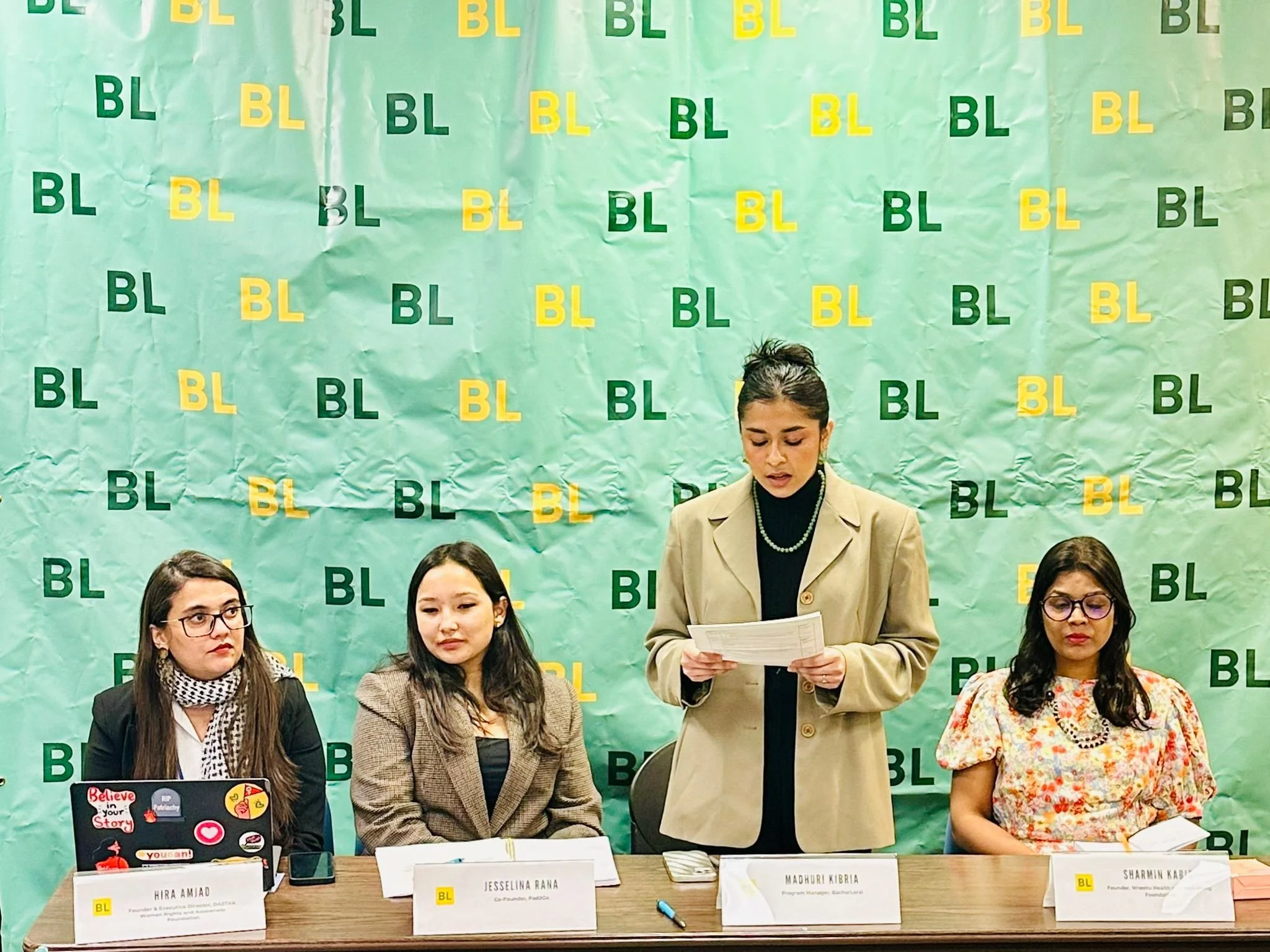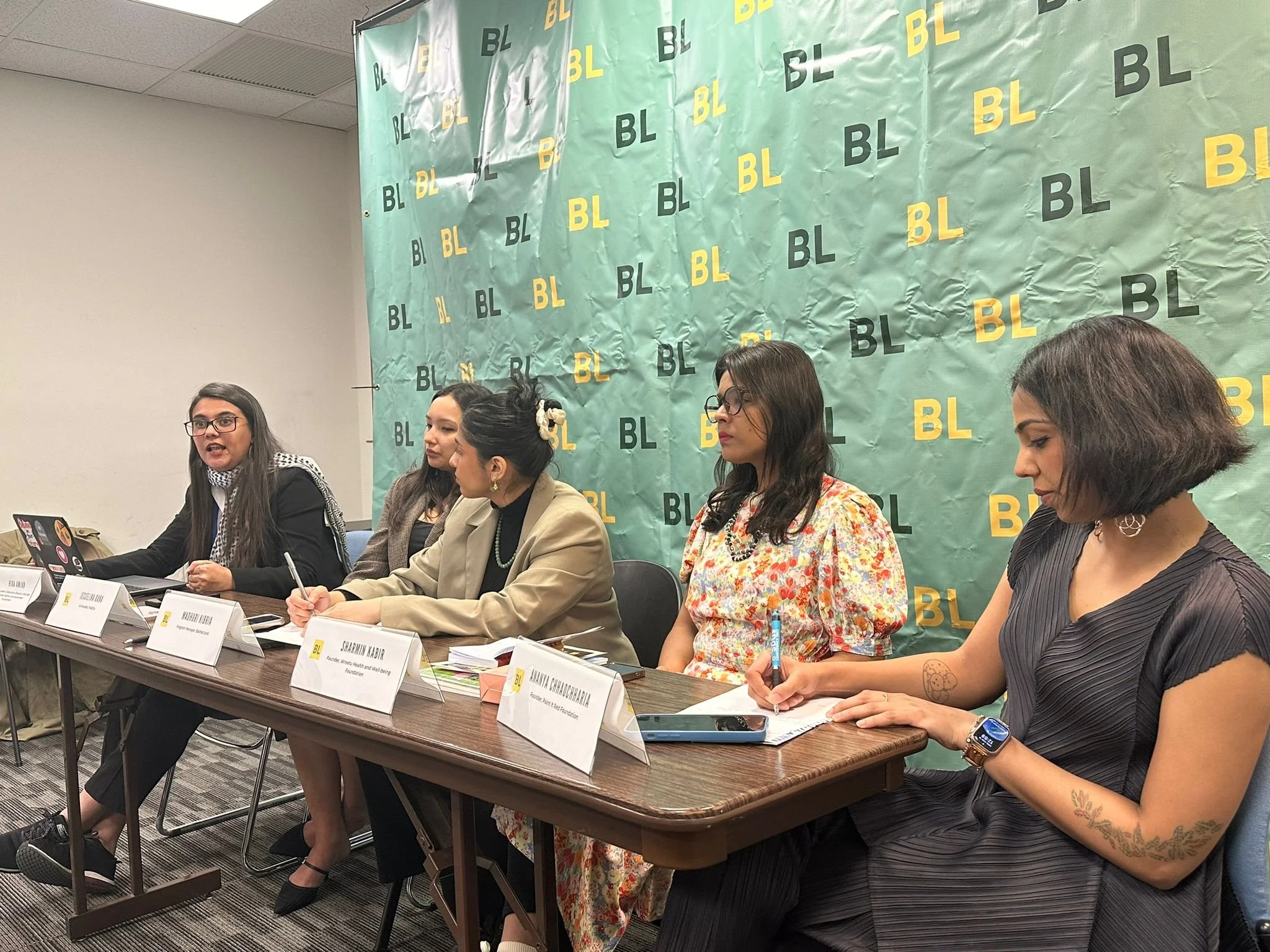Panel: Ending Period Poverty for South Asian Women & Girls in the Subcontinent
Impact Snapshot
Beneficiaries: 70 attendees
Location: New York City
Partners: JWF | NGOCSW
SDG Alignment: SDG 5
During Session 68 of the United Nations Commission on the Status of Women, the panel brought together experts to address the critical issue of MHM in the Indian Subcontinent, aiming to foster a comprehensive dialogue on the challenges, lessons learned and best practices. The session was notable for its in-depth discussions that shed light on the various challenges and innovative approaches being undertaken in Bangladesh, India, Nepal, Pakistan and Sri Lanka.
Addressing Cultural and Access Barriers in Menstrual Health Management (MHM)
The panel underscored the critical challenges faced by women and girls in accessing MHM due to cultural stigmas and socioeconomic barriers. Emphasizing the impact of these barriers on education and social participation, the discussion highlighted the need for strategic interventions to break the cycle of misinformation and taboo around menstruation.
Inclusive Language and Representation in Menstrual Health
A significant emphasis was placed on the necessity of inclusive language and representation in addressing menstruation. The conversation revealed the often-overlooked aspect of menstruation in non-binary, transgender, and other marginalized groups, advocating for a broader, more inclusive approach to MHM.
Empowering Grassroots Initiatives for Direct Community Impact
The panelists highlighted the crucial role of grassroots organizations in directly reaching communities with tailored MHM interventions. They stressed the importance of these organizations in understanding and addressing specific local needs, advocating for more robust support and funding for such groups.
Collaborative Efforts to Strengthen MHM Networks
The discussion recognized the power of collaboration among various stakeholders in MHM, including practitioners, policymakers, and CSOs. This collaborative approach was identified as key to sharing best practices, driving policy change, and ensuring effective resource utilization.
Prioritizing Accessibility and Inclusivity in MHM Solutions
A major point of agreement was the need for accessibility and inclusivity in MHM solutions. The panel called for efforts to make menstrual health products and education accessible to all, including the most marginalized and vulnerable groups.
Funding and Policy Advocacy for Menstrual Health
A critical recommendation was for more flexible, inclusive, and representative financing in MHM, urging that funds be directed appropriately to grassroots and women-led organizations. The panel also pushed for policy reforms and public health initiatives that support menstrual health, including tax reforms on menstrual products.
Empowering Local Communities Through Leadership and Ownership
The significance of local community empowerment was underscored, focusing on building leadership and ownership among community members. This approach was seen as vital in building trust and ensuring the effectiveness of MHM programs at the grassroots level.
SDG Alignment
5.6: ensure universal access to sexual and reproductive health and reproductive rights as agreed in accordance with the Programme of Action of the ICPD and the Beijing Platform for Action
Context
In recent years, the issue of menstrual health has gained increasing recognition as a fundamental aspect of women's rights and well-being, intersecting with various UNSDGs. Despite this growing awareness, menstrual health continues to be a neglected area, particularly in South Asian countries like Bangladesh, India, Pakistan, Nepal, and Sri Lanka. In these regions, deep-rooted social stigmas, limited access to education, and systemic gender inequalities exacerbate the challenges faced by women and girls in financing and managing their menstrual health.
This session, moderated by Madhuri Kibria, provided a platform for esteemed panelists from South Asia to share their unique perspectives, experiences, and contributions toward sustainable development in their respective regions. The panelists included:
Madhuri Kibria (Moderator): Program Manager, BacharLorai.
Sharmin Kabir (Bangladesh): Founder, Wreetu Health and Wellbeing Foundation.
Ananya Chhaochharia (India): Founder, Paint It Red Foundation.
Hira Amjad (Pakistan): Founder, DASTAK Women Rights and Awareness Foundation.
Jesselina Rana (Nepal): Co-Founder, Pad2Go.
Hafsah Muheed (Sri Lanka): Founder, Amplifying Impact
On the sidelines of the 68th Session of the UN Commission on the Status of Women (CSW), BL in partnership with the Journalist and Writer’s Foundation (JWF), and NGO CSW, hosted a panel discussion titled "Ending Period Poverty for South Asian Women & Girls." The event brought together a diverse group of experts and practitioners to address the critical issue of MHM in the Indian Subcontinent, aiming to foster a comprehensive dialogue on the challenges, lessons learned, and best practices.
In recent years, the issue of menstrual health had gained increasing recognition as a fundamental aspect of women's rights and well-being, intersecting with various UNSDGs. Despite this growing awareness, menstrual health continued to be a neglected area, particularly in South Asian countries like Bangladesh, India, Pakistan, Nepal, and Sri Lanka. In these regions, deep-rooted social stigmas, limited access to education, and systemic gender inequalities exacerbated the challenges faced by women and girls in financing and managing their menstrual health.
BL's panel aimed to highlight these challenges, emphasizing the urgent need for improved practices and policies tailored to the unique cultural and socio-economic contexts of South Asian countries. The panel delved into the role of menstrual health in achieving broader gender equality and its impact on women's educational and economic participation. It sought to bridge the knowledge gaps and enhance grassroots advocacy on menstrual health, which are crucial for improving the societal status and health of women and girls.
Drawing on recommendations from BacharLorai's 2023 Policy Brief – "Ending Period Poverty" – the panel discussion underscored the significance of collaborative efforts involving government bodies, non-governmental organizations (NGOs), civil society organizations (CSOs), and human rights groups.










